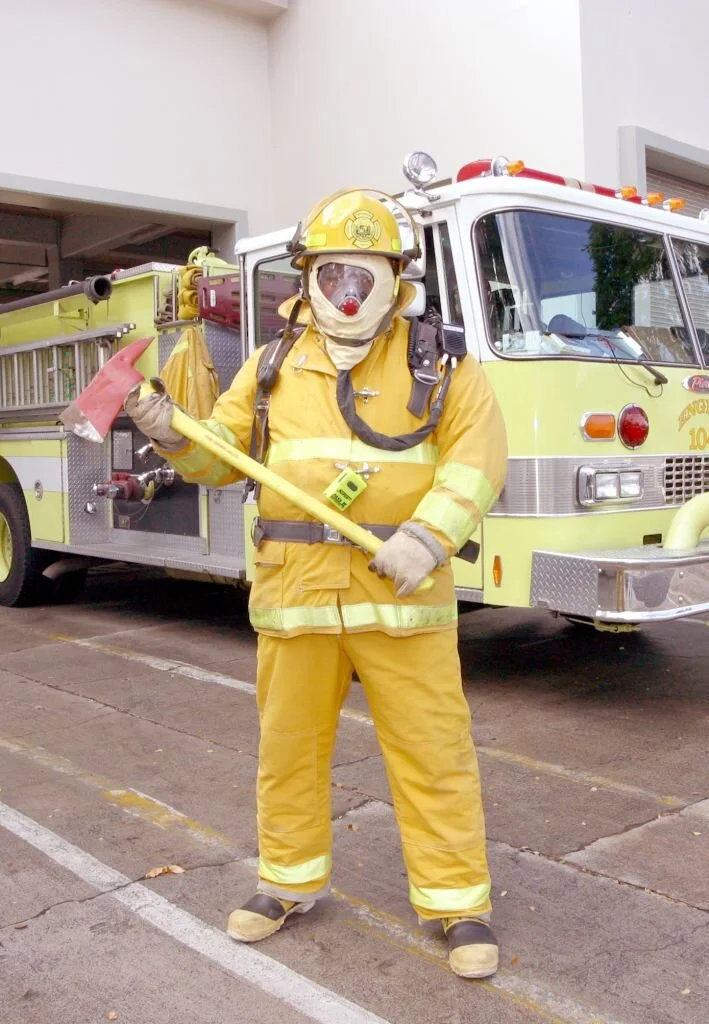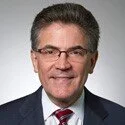
Martha Bebinger: Mass. COVID-19 contact tracers might offer milk or help with rent
BOSTON
It’s a familiar moment. The kids want their cereal and the coffee’s brewing, but you’re out of milk. No problem, you think — the corner store is just a couple of minutes away. But if you have COVID-19 or have been exposed to the coronavirus, you’re supposed to stay put.
Even that quick errand could make you the reason someone else gets infected. But making the choice to keep others safe can be hard to do without support.
For many — single parents or low-wage workers, for instance — staying in isolation is difficult as they struggle with how to feed the kids or pay the rent. Recognizing this problem, Massachusetts includes a specific role in its COVID-19 contact-tracing program that’s not common everywhere: a care resource coordinator.
Luisa Schaeffer spends her days coordinating resources for a densely packed, largely immigrant community in Brockton, Mass.
On her first call of the day recently, a woman was poised at her apartment door, debating whether to take that quick walk to get groceries. The woman had COVID-19. Schaeffer’s job is to help clients make the best choice for the public — sometimes, the help she offers is as basic, and important, as the delivery of a jug of milk.
“That’s my priority. I have to put milk in her refrigerator immediately,” Schaeffer said.
“Most of the time it’s the simple things, the simple things can spread the virus.”
The woman who needed milk was one of eight cases referred to Schaeffer through the state government’s Community Tracing Collaborative. Contact tracers make daily calls to people in isolation because they’ve tested positive or those in quarantine because they’ve been exposed to the coronavirus and must wait 14 days to see if they develop an infection. The collaborative estimates that between 10% and 15% of cases request assistance. Those requests are referred to Schaeffer and other care resource coordinators.
“So many people are on this razor-thin edge, and it’s often a single diagnosis like COVID that can tip them over,” said John Welch, director of operations and partnerships for Partners in Health’s Massachusetts Coronavirus Response, which manages the state’s contact-tracing program.
He said a role such as resource coordinator becomes essential in getting people back to “a sense of health, a sense of wellness, a sense of security.”
With milk on its way, Schaeffer dialed a woman who needed to find a primary-care doctor, make an appointment and apply for Medicaid. That call was in Spanish.
With her third client, Schaeffer switched to her native language, Cape Verdean Creole. The man on the other end of the line and his mother had both been sick and out of work. He applied for food stamps and was denied. Schaeffer texted the regional head of a state office that manages that program. A few minutes later, the director texted back that he was on the case.
Schaeffer, who has deep roots in the community, is on temporary loan to the state’s contact-tracing collaborative and will later return to her job, helping patients understand and follow their prescribed treatments at the Brockton Neighborhood Health Center.
The collaborative said most client requests are for food, medicine, masks and cleaning supplies. COVID-19 patients who are out of work for weeks or who don’t have salaried jobs may need help applying for unemployment or help with rental assistance — available to qualified Massachusetts residents.
Care-resource coordinators even connect people with legal support when they need it. An older woman employed in the laundry room at a nursing home was told she wouldn’t be paid while out sick. Schaeffer got in touch with the Community Tracing Collaborative’s attorney, who reminded the company that paid sick leave is required of most employers during the pandemic.
“So, now, everything’s in place. She started getting paid,” Schaeffer said.
There are glitches as the care-resource coordinators try to support people isolating at home. Some workers who are undocumented return to work because they fear losing their jobs. When the local food bank runs out, Schaeffer has had to scramble to find a local grocer to help. The free canned goods or vegetables can be like foreign cuisine for Schaeffer’s clients, some of whom are from Cape Verde and Peru. In those cases, she can reach out to a nutritionist and set up a cooking lesson via conference call.
“I love the three-way calls,” she said, beaming.
Schaeffer and other care resource coordinators have responded to more than 10,500 requests for help so far through Massachusetts’s contact-tracing program. Demand is likely greater in cities such as Brockton, with higher infection rates than most of the state and a 28.7 percent lower median household income.
Massachusetts has carved out care-resource coordination as a separate job in this project. But the role is not new. Local health departments routinely include what might be called support or wrap-around services when tracing contacts. With cases of tuberculosis, for example, a public-health worker might make sure patients have a doctor, get to frequent appointments and have their medications.
“You can’t have one without the other,” said Sigalle Reiss, president of the Massachusetts Health Officers Association.
Partners in Health’s Welch, who is advising other states on contact tracing, said the importance of having someone assist with food and rent while residents isolate isn’t getting enough attention.
“I don’t see that as a universal approach with other contact-tracing programs across the U.S.,” he said.
Some contact-tracing programs that schools, employers or states have erected during the pandemic cover only the basics.
“They’re focused on: Get your positive case, find the contacts, read the script, period, the end,” said Adriane Casalotti, chief of government and public affairs at the National Association of City and County Health Officials. “And that’s really not how people’s lives work.”
Casalotti acknowledged that the support role — and services for people isolating or in quarantine — adds to the cost of contact tracing. She urges more federal funding to help with this expense as well as a federal extension of the paid sick time requirement, and more money for food banks so that people exposed to the coronavirus can make sure they don’t give it to anyone else.
“Individuals’ lives can be messy and complicated, so helping them to be able to drop everything and keep us all safe — we can help them through the challenges they might have,” Casalotti said.
This story is part of a partnership that include WBUR, NPR and Kaiser Health News.
Martha Bebinger, WBUR: marthab@wbur.org, @mbebinger
Brockton City Hall, built in 1892, back in the era when the city called itself “The Shoemaking Capital of the World.’’
Martha Bebinger: COVID-19 taking an axe to Mass. health-care workers' pay
BOSTON
Just three weeks ago, Dr. Kathryn Davis worried about the coronavirus, but not about how it might affect her group of five OB-GYNs who practice at a suburban hospital outside Boston.
“In medicine we think we’re relatively immune from the economy,” Davis said. “People are always going to get sick; people are always going to need doctors.”
Then, two weeks ago, she watched her practice revenue drop 50 percent almost overnight after Massachusetts officials told doctors and hospitals to stop performing elective tests and procedures. For Davis, that meant no more non-urgent gynecological visits and screenings.
Late last week, as Davis and her partners absorbed the stunning turn of events, they devised a stopgap plan. The 35 nurses, medical assistants and secretaries they employ would have two options: move from full-time to part-time status or start collecting unemployment. Doctors in the practice would take a substantial pay cut. Davis said she’s hearing from colleagues who may have to permanently close their offices if the focus on crisis-level care continues for months.
“It’s shocking,” she said. “Everyone has been blindsided.”
Atrius Health, the largest independent physician group in Massachusetts, said patient volume is down 75 percent since mid-March. It is temporarily closing offices, placing many nonclinical employees on furlough and withholding pay for those who remain. The average withholding is 20 percent and the company pledges that pay withheld will be returned. The lowest-paid workers, those earning up to $55,000, are exempt.
Steven Stongwater
“What we’re trying to do is piece together a solution to get through the crisis and keep employed as many people as we can,” said Dr. Steven Strongwater, Atrius Health’s CEO.
Atrius cares for 745,000 patients in clinics that often include primary care, specialists, radiology and a pharmacy under one roof.
Strongwater said physician groups must be included when the federal government distributes $100 billion to hospitals from the $2 trillion stimulus package.
It’s not clear if that money will stop the tide of layoffs and lost pay at hospitals as well as in doctor’s offices. A Harvard Medical School physician group will suspend retirement contributions starting April 1.
Part of Beth Israel Lahey Health.
Beth Israel Lahey Health, the second-largest hospital network in Massachusetts, announced executive pay cuts Monday.
“The suspension of elective procedures and decline in visits to our primary-care practices and urgent care centers have resulted in financial challenges,” wrote CEO Dr. Kevin Tabb in an email to employees. Tabb said he would take a 50% salary cut. Other executives and hospital presidents in the system will forgo 20% of their salaries for the next three months.
“Although executive leadership compensation is being reduced, we will never compromise on doing the things that are essential to protect your safety and the safety of our patients,” Tabb told staff.
Dallas-based Steward Health Care has told hospital employees in Massachusetts and eight other states where it operates to expect furloughs focused on nonclinical staff. In a statement, Steward Health Care said it prepared for the pandemic but is experiencing a “seismic financial shock.”
“Elective surgeries are the cornerstone of our hospital system’s operating model — and the negative impact due to the cancellations of these procedures cannot be overstated. In addition, patients are understandably cautious and choosing to defer any nonemergency treatments or routine visits until this crisis has passed.”
Dr. Kaarkuzhali Babu Krishnamurthy, an assistant professor of neurology at Harvard Medical School who studies medical ethics, said employers need to think more carefully about the ethics of asking doctors and nurses to live on less when many are working longer hours and putting the health of their families at risk.
“At a time when health-care systems are calling on doctors and nurses to do more, this is not the time to be making it more difficult to do that,” said Krishnamurthy.
There’s talk of redeploying laid-off health care workers to new COVID-19 units opening in shuttered hospitals or to patient overflow sites. Tim Foley, executive vice president for the largest health care union in Massachusetts, 1199SEIU, is promoting the development of a staff registry.
“It is more important, now more than ever, to explore all options to maintain the level of urgent care needed across the state and we look forward to working with all stakeholders to do just that,” Foley said in an email.
This story is part of a partnership that includes WBUR, NPR and Kaiser Health News.
Martha Bebinger is a reporter for WBUR, in Boston.
Martha Bebinger, WBUR: marthab@wbur.org, @mbebinger






